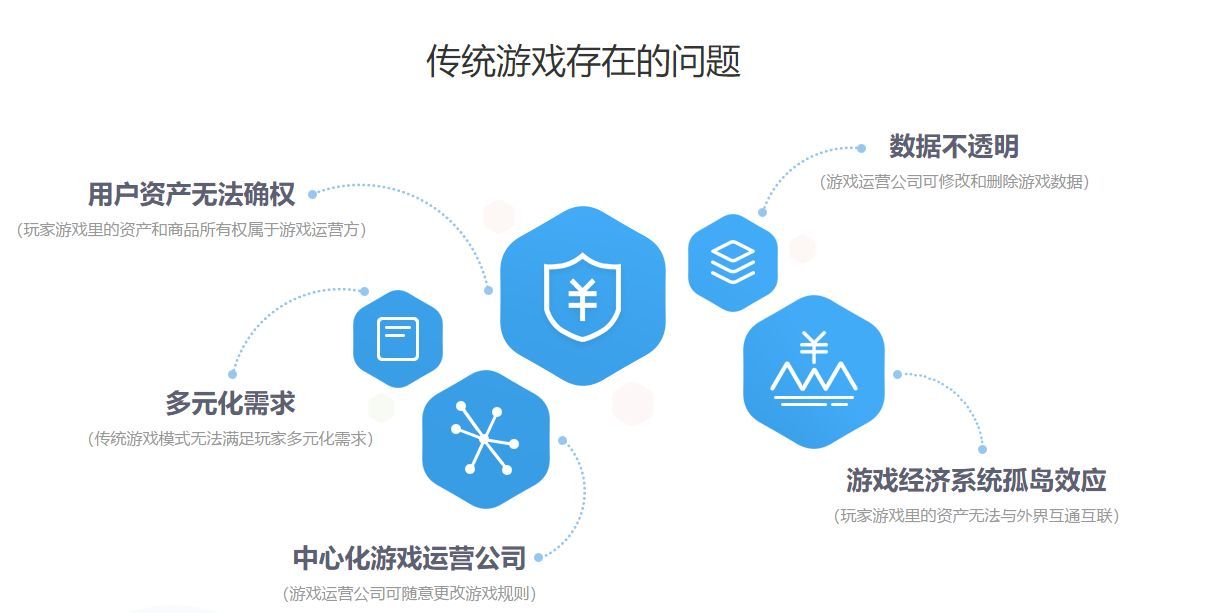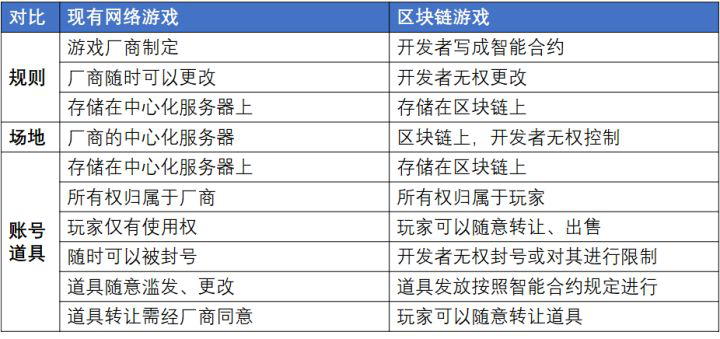Blockchain and games | IPFS's God-level application lies in the game?
Currently, IFPS is still the hottest project in the blockchain. In the past two years, the blockchain has been taking root in the industry. The areas that are closely integrated with it are financial, digital assets, smart contracts, etc. The potential of IPFS in the future is incalculable. Digital gold, cross-border payment, etc. will probably be Derived financial applications. As one of the digital asset classifications, the game field is so hot, then we can imagine, if IPFS and the game merge, what kind of fireworks will collide?
1. Ownership and liquidity of game assets
In traditional games, the points, props, weapons, and roles are all owned by the developer. Therefore, the centralized developers have more power to make drastic changes to these assets, and even dispose of them at will. These assets in the game are often limited to the internal circulation of this game, and beyond the game, there seems to be no reuse value. Under IPFS logic, these points, items, weapons, and characters can be fully attributed to the player, and the player has 100% ownership of the asset. Then we can imagine the following several application scenarios:
1) Assets are traded anywhere, anytime: A large number of games do not have the function of props trading. The original intention of this design is to avoid confusion of the internal economic mechanism, prolong the user's game time and increase the developer's income. Assuming that the above is not a problem that developers are worried about, then "Proper Winding + Mobile Wallet" can enable two users to go online and offline online anytime, anywhere. If the thinking is more open, assuming that the transaction is not necessarily limited to a game, we can completely exchange a peerless good sword in Game A for a Dragon Slayer in Game B, as long as we reach a consensus on the value of the exchanged items.
2) Game asset reuse: After the asset is chained, because it is hung under the address of each player, it is easy for developers to reuse other game assets for secondary transformation or cross-game reuse. Asset reuse is the easiest for games in the same ecosystem or IP, but for cross-IP cross-game types, asset reuse requires complex design and developer collaboration, whether IPFS can be used. Is power directly imported in an open environment?
- BMW and Mercedes-Benz have frequent rights protection, can blockchain technology be solved?
- The battle between bitcoin: big data vs personal privacy
- DCF model and crypto asset valuation
3) New user acquisition methods: In traditional games, new games often need to re-acquire users, or use old games to guide new games. IPFS can break this way and reduce the cost of getting customers.
Second, the relationship between game developers and players
Most of the time, gamers and developers tend to stand on the opposite side. One wants to find the imbalance of the game to earn the reputation in the game and get the thrill of the game. The other side adjusts the parameters of the game by changing the game mechanism. Wash the user again and again, and extract the value of the user.
The emergence of IPFS has changed the relationship between the two, in the game, the relationship between the developer and the player will undergo a fundamental change. Traditional games run on a centralized server, and developers specify rules for players to try to break through the rules. What if the game is running on multiple nodes and some of the nodes are run by the player and given some incentives?
Developers and gamers have the potential to form a community, a consensus. When some nodes are delivered to the KOL in the game, some of the benefits of the game maker will be highly consistent with the interests of the game community. The loyal players will spontaneously maintain the balance of the game, help the developer to acquire the user, and extend the life cycle of the game. Build the entire community.

Third, the game mechanism is transparent
Players can view the rules of the game that were only hidden in the centralized server in the past, and now a stronger bond of trust between the developer and the player is established. Under the logic of the transparent game mechanism, the player can clearly know and believe the probability of opening a treasure chest, whether a rare weapon is really rare, and whether the developer promises to actually cash. In the case of a traditional game source code black box, these can be adjusted at will by the game operator. Fair and equitable mechanisms and game updates that are agreed upon by the community give players a more pure experience.

The online games developed over the past 20 years are basically based on the HTTP protocol. This makes decentralization technically impossible. The emergence and maturity of blockchain technology will make virtual assets, decentralized storage, and decentralization of game rules feasible at the technical level.
"The game belongs to the game, the player belongs to the player, the props belong to the props, the venue belongs to the venue, and the organization belongs to the organization." I believe that the blockchain will return the game to what it should be.
We will continue to update Blocking; if you have any questions or suggestions, please contact us!
Was this article helpful?
93 out of 132 found this helpful
Related articles
- Executives sentenced, currency prices were low, Korea's fifth largest cryptocurrency exchange COINNEST ceased operations
- You said that you are a Buddha holding money? NO, you are just a turtle
- Haier, who took the initiative to break himself, used the "blockchain + Internet of Things" to catch the intelligent age train
- Cai Weide: Digital legal currency or the 10th generation blockchain technology can be realized
- Introduction and practice of cryptography
- Looking at the bitcoin world after Assange was arrested
- The real touchstone of Bitcoin! ShapeShift CEO Erik Voorhees: Bitcoin will be the escape port when the next economic crisis comes





